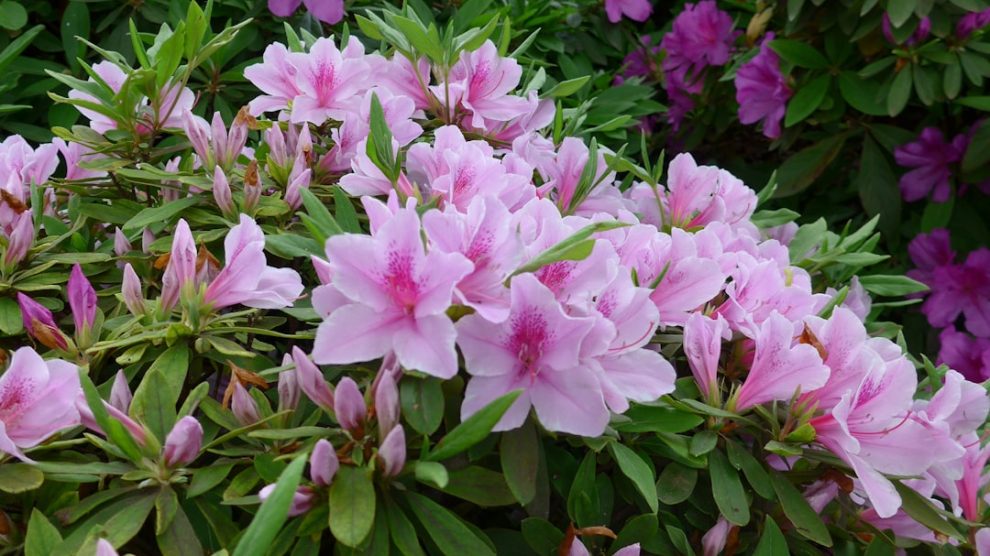As I delve into the Taoist approach to gardening, I find it fascinating how this ancient philosophy intertwines with the natural world. At its core, Taoism emphasizes living in harmony with the Tao, or the fundamental nature of the universe. This perspective encourages me to view gardening not merely as a task but as a spiritual practice that fosters a deeper connection with nature.
In Taoist thought, every element of the garden—be it a stone, a plant, or even the soil—holds significance and contributes to the overall balance of the ecosystem. This holistic view inspires me to cultivate my garden with intention, recognizing that each action I take has a ripple effect on the environment around me. Moreover, the Taoist approach to gardening encourages me to embrace simplicity and spontaneity.
Unlike conventional gardening methods that often prioritize control and uniformity, Taoism teaches me to appreciate the beauty of imperfection and the natural growth patterns of plants. I am reminded that nature has its own rhythm and that my role as a gardener is to facilitate rather than dictate this process. By allowing my garden to evolve organically, I can create a space that reflects the true essence of life—ever-changing, unpredictable, and beautifully chaotic.
Key Takeaways
- Taoist gardening emphasizes working in harmony with nature and the natural flow of energy.
- Cultivating inner peace through Taoist gardening involves mindfulness, meditation, and connecting with the natural world.
- Feng Shui plays a significant role in Taoist garden design, focusing on creating balance and harmony in the space.
- Symbolism and meaning are important in Taoist garden layouts, with elements chosen to represent harmony and balance.
- Connecting with the principles of Yin and Yang is essential in Taoist garden design, creating balance and flow in the space.
Harmonizing with Nature in Taoist Gardening
In my journey through Taoist gardening, I have come to understand the importance of harmonizing with nature. This philosophy encourages me to observe the natural environment closely and to work with its inherent qualities rather than against them. For instance, I pay attention to the seasonal changes, understanding that each season brings its own unique gifts and challenges.
By aligning my gardening practices with these cycles, I can cultivate a garden that thrives in its natural context. This means planting according to the seasons, using native plants that are well-suited to my local climate, and allowing the landscape to dictate my choices. Additionally, harmonizing with nature involves creating a diverse ecosystem within my garden.
I have learned that biodiversity is essential for a healthy environment, as it promotes resilience against pests and diseases. By incorporating a variety of plants, flowers, and even wildlife habitats, I can foster a balanced ecosystem that supports all forms of life. This interconnectedness reminds me that I am not separate from nature but rather an integral part of it.
Each time I step into my garden, I feel a sense of unity with the earth and its inhabitants, reinforcing my commitment to nurturing this delicate balance.
Cultivating Inner Peace through Taoist Gardening Practices

Taoist gardening practices offer me a unique pathway to cultivate inner peace. The act of tending to my garden becomes a meditative experience, allowing me to quiet my mind and connect with the present moment. As I dig my hands into the soil, I feel a sense of grounding that helps me release stress and anxiety.
The rhythmic motions of planting, weeding, and watering become a form of moving meditation, where I can immerse myself in the sensory experiences of nature—the warmth of the sun on my skin, the scent of fresh earth, and the sound of rustling leaves. Moreover, the principles of Taoism encourage me to embrace stillness and patience in my gardening journey. I have learned that growth takes time and that rushing through tasks only leads to frustration.
By practicing mindfulness in my gardening routine, I can appreciate each stage of development—from seedling to full bloom. This patience extends beyond the garden; it seeps into my daily life, reminding me to slow down and savor each moment. In this way, gardening becomes not just an activity but a profound practice for cultivating inner tranquility.
The Role of Feng Shui in Taoist Garden Design
Feng Shui plays a significant role in my understanding of Taoist garden design. This ancient Chinese practice focuses on creating harmonious environments by balancing energy flow, or “qi.” As I explore Feng Shui principles in my garden, I become more aware of how layout and placement can influence the overall energy of the space. For instance, I consider the positioning of pathways, water features, and plants to ensure that they promote positive energy flow.
By creating inviting pathways that encourage exploration and movement, I can enhance the overall experience of being in my garden. Incorporating elements such as water features also aligns with Feng Shui principles. Water is considered a symbol of abundance and prosperity in this practice.
By adding a small pond or fountain to my garden, I not only create a tranquil atmosphere but also invite positive energy into the space. The sound of flowing water becomes a soothing backdrop for meditation and reflection. Through these intentional design choices rooted in Feng Shui, I can cultivate a garden that not only looks beautiful but also feels energetically balanced and harmonious.
Using Symbolism and Meaning in Taoist Garden Layouts
As I explore Taoist gardening further, I discover the rich symbolism embedded in garden layouts. Each element within the garden can carry profound meaning, reflecting various aspects of life and nature. For instance, rocks may symbolize stability and strength, while flowing water represents adaptability and change.
By thoughtfully incorporating these symbols into my garden design, I can create a space that resonates with deeper philosophical concepts. I also find joy in using plants with specific meanings in my garden. For example, bamboo symbolizes resilience and flexibility, while lotus flowers represent purity and enlightenment.
By selecting plants that embody these qualities, I can cultivate an environment that inspires reflection and personal growth. Each time I tend to these plants or simply admire their beauty, I am reminded of their symbolic significance and how they relate to my own journey through life.
Incorporating Meditation and Mindfulness in Taoist Garden Maintenance

Incorporating meditation and mindfulness into my garden maintenance has transformed how I approach this practice. Rather than viewing gardening as a chore or obligation, I now see it as an opportunity for self-reflection and connection with nature. As I engage in tasks like pruning or harvesting, I focus on being fully present in each moment.
This mindfulness allows me to appreciate the intricate details of my surroundings—the texture of leaves, the colors of flowers, and even the sounds of birdsong. I have also found that creating designated meditation spaces within my garden enhances this experience. A simple bench nestled among flowering plants or a quiet corner with a stone path invites me to pause and reflect.
These spaces serve as reminders to take time for myself amidst the busyness of life. When I sit quietly in these areas, I can breathe deeply and connect with the energy of the garden around me. This practice not only nurtures my spirit but also deepens my appreciation for the beauty and tranquility that nature offers.
Creating Balance and Flow in Tao Tzu Gardening
Creating balance and flow in my Tao Tzu gardening practice is essential for fostering harmony within the space. Inspired by the teachings of Lao Tzu, I strive to embody principles such as simplicity and naturalness in my design choices. This means avoiding overly complex layouts or rigid structures that disrupt the organic flow of the garden.
Instead, I focus on creating gentle curves in pathways and allowing plants to grow freely without excessive pruning or manipulation. I also pay attention to how different elements interact within the garden. For instance, placing taller plants behind shorter ones creates layers that enhance visual interest while maintaining balance.
Additionally, incorporating open spaces allows for breathing room within the design—an essential aspect of flow. By embracing these principles of balance and flow inspired by Tao Tzu’s teachings, I can cultivate a garden that feels serene and inviting.
Connecting with the Taoist Principles of Yin and Yang in Garden Design
The concept of Yin and Yang profoundly influences my approach to garden design. This duality represents complementary forces that exist within nature—light and dark, soft and hard, active and passive. As I create my garden layout, I strive to incorporate elements that embody both Yin and Yang qualities.
For example, I might juxtapose vibrant flowering plants (Yang) with tranquil shaded areas (Yin) to create a dynamic yet harmonious environment. Furthermore, understanding how these principles manifest in seasonal changes enriches my gardening experience. In spring and summer, Yang energy is abundant as plants flourish under sunlight; conversely, autumn and winter bring forth Yin energy as nature rests and prepares for renewal.
By aligning my gardening practices with these cyclical rhythms—planting during appropriate seasons or allowing certain areas to go dormant—I can honor the natural balance inherent in life itself. In conclusion, embracing the Taoist approach to gardening has transformed not only how I cultivate my outdoor space but also how I connect with myself and the world around me. Through harmonizing with nature, cultivating inner peace, incorporating Feng Shui principles, utilizing symbolism, practicing mindfulness, creating balance and flow, and connecting with Yin and Yang concepts—I have discovered a profound sense of purpose within this ancient art form.
My garden has become more than just a collection of plants; it is now a living expression of harmony, tranquility, and spiritual growth—a true reflection of the Tao itself.









Add Comment